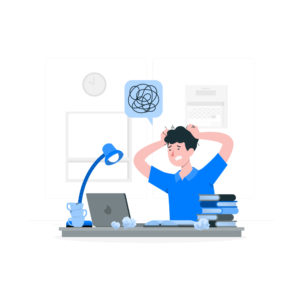
Let’s talk flu, its prevention and home remedies.
Boo-ger season is here! Let’s begin by defining flu (short term for influenza) because it’s usually misunderstood as fever or cold. Flu is a common
In today’s fast-paced and competitive world, work stress has become an all-too-common problem that affects individuals across various professions and industries. The constant pressure, deadlines, and responsibilities can take a toll on our mental and physical well-being. However, it’s essential to find effective ways to reduce work stress and prevent it from overpowering our lives. In this article, we will explore practical strategies and stress relievers to help you maintain a healthy work-life balance and regain control over your well-being.
To effectively manage work stress, it’s crucial to identify its root causes. Some common sources of workplace stress include excessive workload, unrealistic deadlines, lack of control, poor communication, and conflicts with colleagues. By recognising these triggers, you can address them proactively and find suitable solutions.


One of the major contributors to work stress is feeling overwhelmed by an ever-growing to-do list. To combat this, prioritise your tasks based on their urgency and importance. Break them down into manageable segments and delegate responsibilities when possible. Effective delegation not only lightens your workload but also empowers your team members and fosters a collaborative work environment.
In the age of technology, it’s easy to be constantly connected to work, blurring the lines between personal and professional life. Establishing clear boundaries is essential to prevent work stress from seeping into your personal time. Define specific hours for work-related activities and resist the temptation to check emails or work on tasks outside those designated hours. Disconnecting from work during your personal time allows you to recharge and focus on other aspects of your life.


Poor time management can significantly contribute to work stress. Utilise time management techniques, such as the Pomodoro Technique, to improve productivity and reduce stress. Break your work into small, focused intervals with short breaks in between. This approach helps maintain concentration, prevents burnout, and enhances overall efficiency.
Building a strong support system at work is vital for combating stress. Seek out colleagues or mentors whom you trust and can confide in. Engage in open and honest conversations about work pressures, and together, brainstorm solutions or coping mechanisms. Sharing experiences and seeking support can provide fresh perspectives, validate your feelings, and alleviate work stress.
Find activities outside of work that help you unwind and alleviate stress. Regular exercise, such as yoga, running, or swimming, has been proven to reduce stress levels and promote overall well-being. Additionally, practising mindfulness and meditation can help calm the mind and improve focus. Explore hobbies or activities that bring you joy and provide a much-needed respite from work pressure.
Creating a positive work environment can significantly impact stress levels. Encourage open communication, collaboration, and recognition of achievements within your team. Supportive relationships and a sense of belonging foster a healthier work atmosphere, reduce stress, and increase job satisfaction. Consider organising team-building activities or implementing stress management programs to foster a positive workplace culture.


If work stress becomes overwhelming and starts to affect your overall well-being, don’t hesitate to seek professional help. A therapist or counsellor can provide guidance and support in managing stress and developing coping mechanisms specific to your situation. Remember, seeking help is a sign of strength and a proactive step toward regaining control over your life, and this can be done from the comfort of your home via oDoc.
Work stress is a pervasive issue that affects many individuals, but it doesn’t have to dominate your life. By understanding the causes of work stress, prioritising tasks, setting boundaries, and engaging in stress-relieving activities, you can regain control over your well-being and maintain a healthy work-life balance. Foster a positive work environment, nurture a supportive network, and seek professional help. Remember, your mental and physical well-being should always be a priority, and with the right strategies, you can keep work stress from taking over your life.
Sources
How To Handle Work Stress and Burnout.” Cleveland Clinic Health Essentials, 10 January 2023, https://health.clevelandclinic.org/work-stress-and-burnout/
Workplace Stress and Burnout: What Causes It and What Organizations Can Do To Help.” WebMD Health Services, 30 August 2022, https://www.webmdhealthservices.com/blog/workplace-stress-and-burnout-what-causes-it-and-what-organizations-can-do-to-help/
How to Recover from Work Stress, According to Science.” Harvard Business Review, 5 July 2022, https://hbr.org/2022/07/how-to-recover-from-work-stress-according-to-science

Boo-ger season is here! Let’s begin by defining flu (short term for influenza) because it’s usually misunderstood as fever or cold. Flu is a common

Menopause Brain Fog is real: A Simple Guide with Symptoms and Treatment Women in their 40s and 50s who are just entering the end of

How to Keep Work Stress from Taking Over Your Life In today’s fast-paced and competitive world, work stress has become an all-too-common problem that affects
Get the latest health tips delivered straight to your inbox!